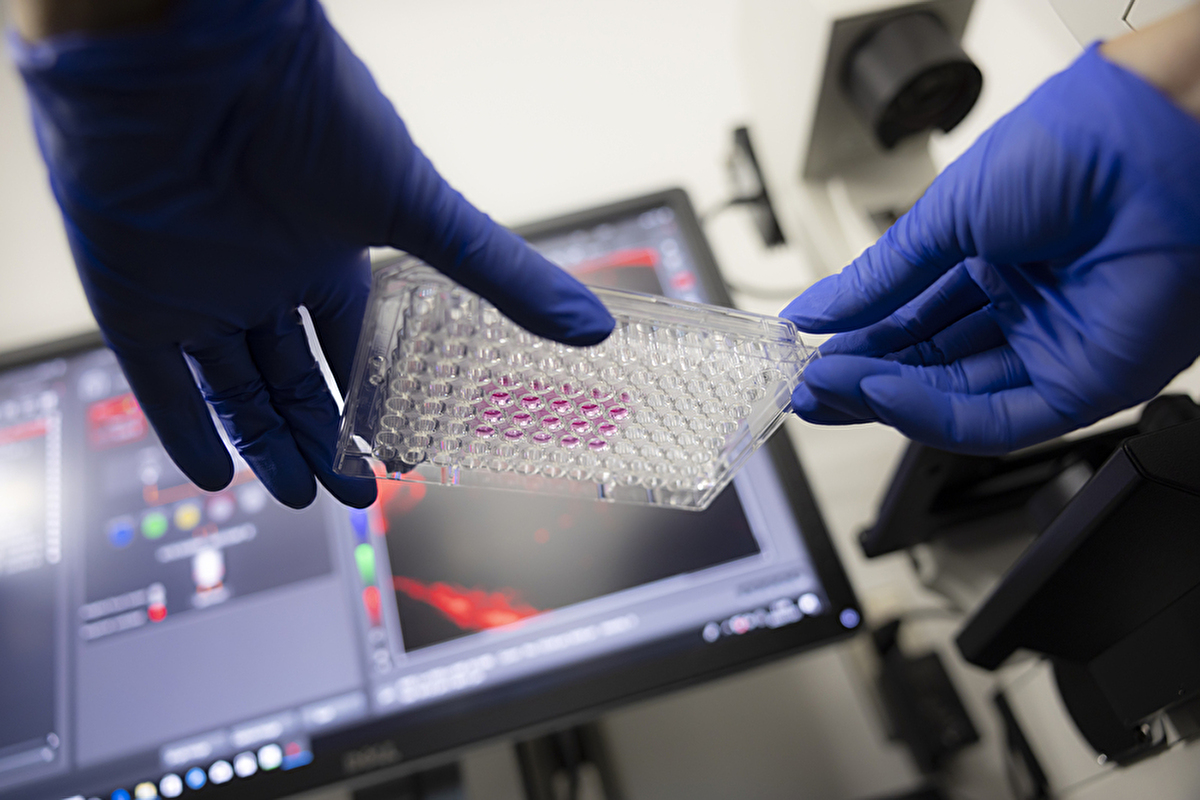
Understanding the Mechanisms of Rare and Intractable Diseases for Advanced Diagnosis and Treatments
Intractable Disease Research CenterDr. Yasushi Okazaki

Understanding the Mechanisms of Rare and Intractable Diseases for Advanced Diagnosis and Treatments
The Intractable Disease Research Center is dedicated to understanding the causes of rare and intractable diseases, and discovering treatments for them. It serves as a research hub with two primary laboratories: the Genomic Medicine Research and Intractable Disease Laboratory, and the Intractable Disease and Regenerative Medicine Laboratory. We spoke to Director Yasushi Okazaki about the center, which also serves as a key facility for clinical research and trials.
The Intractable Disease Research Center was founded in 2016 to focus on advancing genomic medicine and exploring practical applications of regenerative medicine. It has prioritized translational research, bridging basic science and clinical practice. Since 2020, the center has been a hub for clinical trials and research at the Juntendo University Hospital.
Despite significant advances in medical technology, the diagnosis and treatment of numerous intractable diseases remains challenging. There is a growing need to understand the causes and mechanisms of these diseases to develop effective therapies. To address this, the center has developed a research framework anchored by two core laboratories—the Genomic Medicine Research and Intractable Disease Laboratory and the Intractable Disease and Regenerative Medicine Laboratory. The two centers cultivate human resources and promote research, education, and treatment, advancing next-generation medicine and healthcare.
The Genomic Medicine Research and Intractable Disease Laboratory specializes in genomic medicine, with a focus on developing genetic diagnosis and treatment methods for conditions like mitochondrial diseases. The laboratory also fosters a collaborative system, while pursuing advanced, field-specific research, thereby bridging basic research and clinical practice.
The Intractable Disease and Regenerative Medicine Laboratory, on the other hand, serves as a shared on-campus facility and comes equipped with a Cell Processing Room (CPC) and a testing room dedicated to regenerative medicine research, enabling a smooth transition from foundational research to practical applications in regenerative medicine.

The Genomic Medicine Research and Intractable Disease Laboratory focuses on intractable, rare, and undiagnosed diseases. It investigates the underlying causes of these conditions through genomic and genetic techniques, and conducts molecular and cellular analyses using iPS cells.
The laboratory has a special focus on mitochondrial diseases, specifically, congenital metabolic disorders which are caused by defective mitochondrial function. Approximately one in 5,000 newborns are affected by these conditions, with a range of symptoms such as epilepsy, movement disorders, and cardiomyopathy. Many of these cases are identified late in life, with patients in their 50s or older only getting diagnosed after developing symptoms like hearing loss, diabetes, or cardiomyopathy.
Although genetic abnormalities are well-known factors in mitochondrial diseases, the causative genes can only be identified in about one-third of the patients. For over a decade, our research group has conducted nationwide genetic analyses on samples from patients with mitochondrial diseases to identify causative genes and develop targeted treatments. These efforts account for approximately half of the newly diagnosed cases each year.
While previous testing was focused on analyzing partial mitochondrial DNA sequences, a more advanced method, known as “mitochondrial disease gene panel sequencing,” has since been developed. This enables efficient analysis of causative genes in a single process, including those from nuclear DNA, significantly increasing the capacity to examine a larger number of cases. As of Dec 2024, we are affiliated with 90 major medical institutions across Japan.
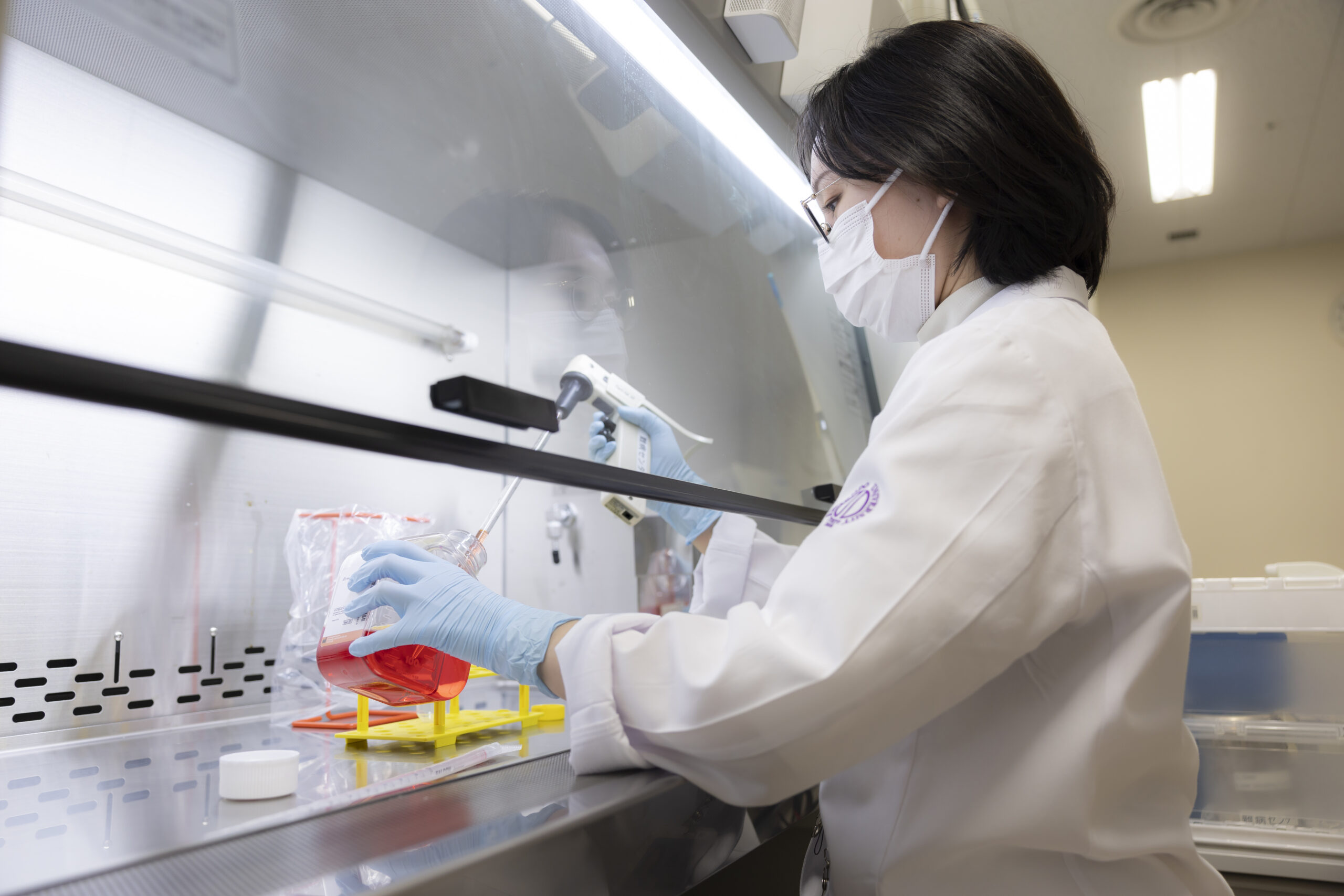
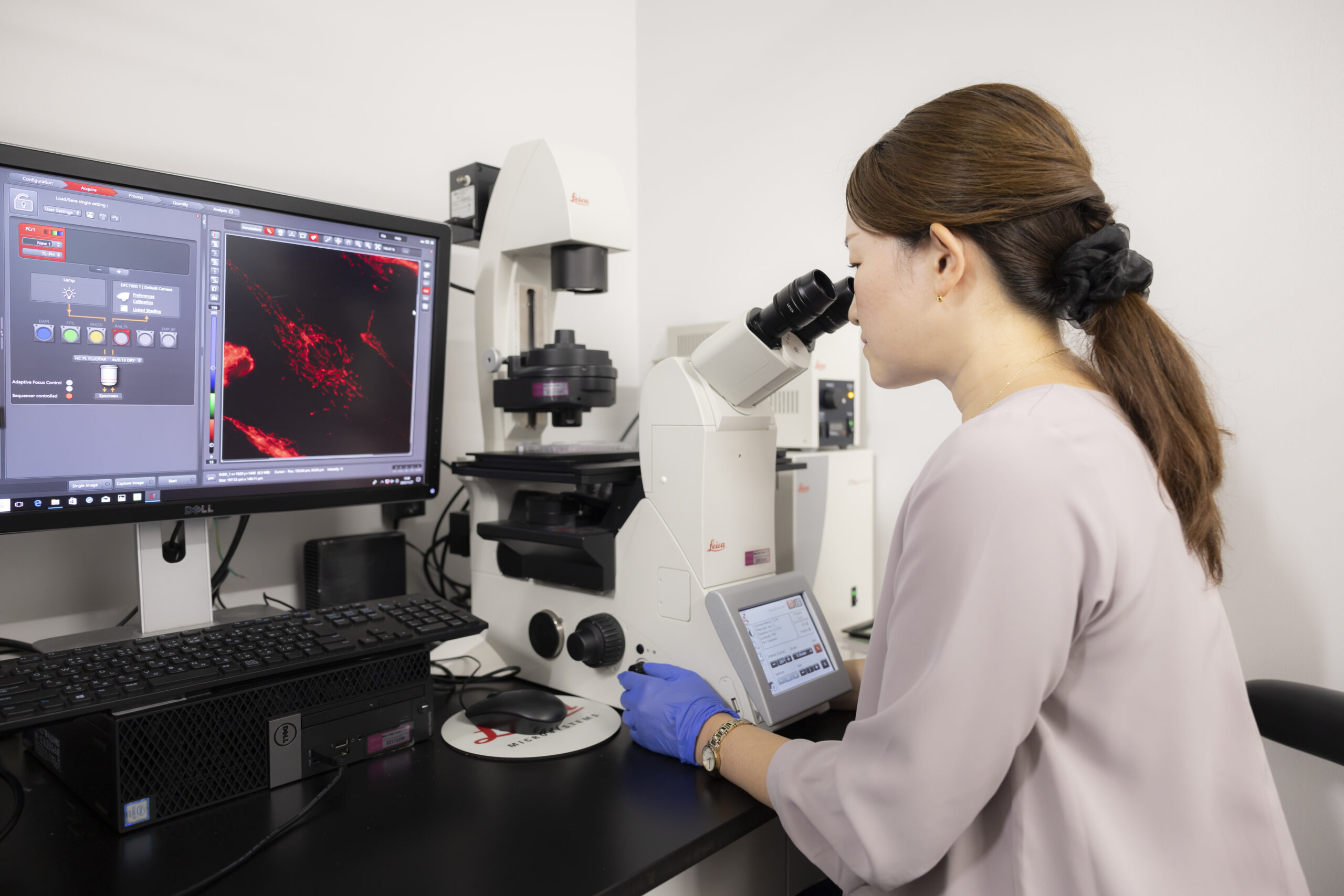
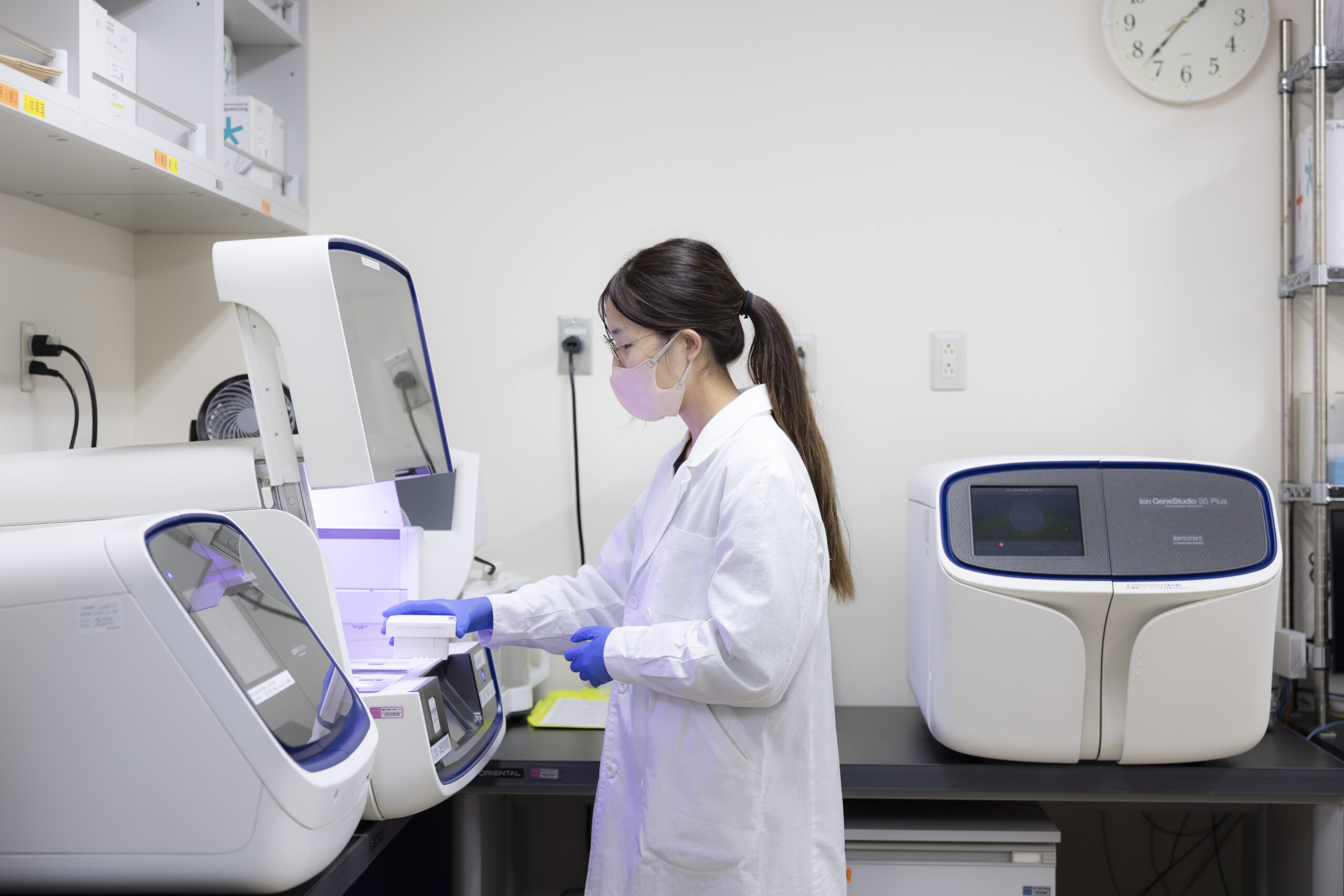
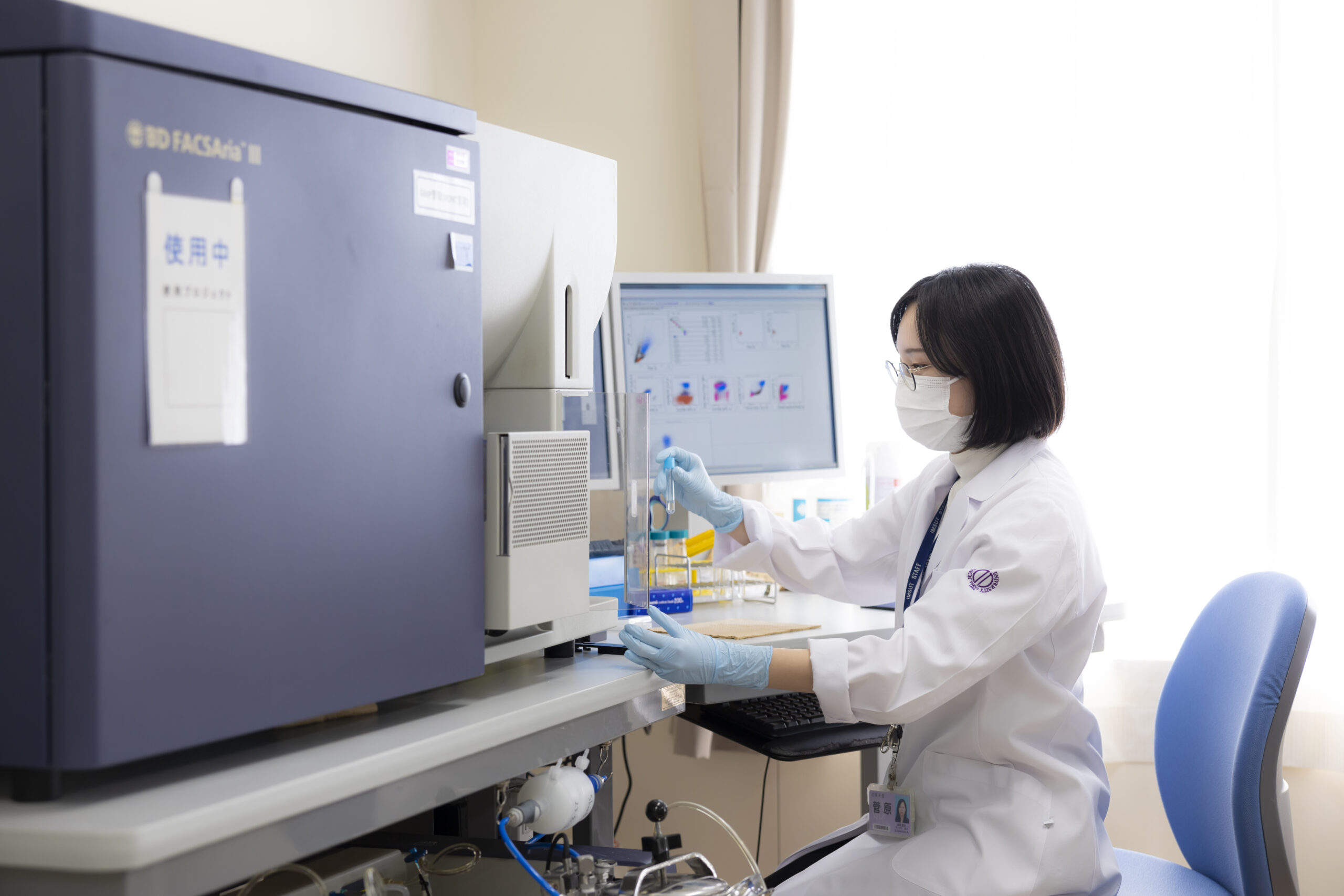

The Genomic Medicine Research and Intractable Disease Laboratory extends its focus beyond mitochondrial diseases, actively investigating the pathology and developing treatments for various hereditary intractable diseases. These include inflammatory bowel disease, Lynch syndrome, Marfan’s syndrome, familial hypercholesterolemia, and hereditary pancreatitis. This involves genetic analysis research, for instance, for familial adenomatous polyposis, a condition linked to colorectal cancer, the laboratory conducted collaborative investigation to identify numerous novel pathogenic variants through genetic analysis, contributing to the development of clinical guidelines.
In a collaborative study with the Department of Breast Oncology, Cellular and Molecular Pharmacology, the Genomics and Regenerative Medicine Center explored the potential role of inflammation induction pathways in severe cardiotoxicity–a known side effect of trastuzumab, a molecular-targeted drug for HER2-positive breast cancer–using cardiomyocytes derived from iPS cells. This research has laid the foundation for developing new treatments and biomarkers with reduced side effects.
We are also promoting a technique called ‘direct reprogramming,’ that generates insulin-producing cells by directly transdifferentiating somatic cells/non-germline cells. In collaboration with Astellas Pharma, this center has established the Direct Reprogramming Regenerative Medicine Course, securing a patent for this innovative technology.
Insulin, a hormone secreted by the pancreas, plays a critical role in regulating sugar metabolism. However, in type 1 diabetes, defects in insulin-producing cells result in minimal or no insulin secretion. Consequently, patients with type 1 diabetes must rely on lifelong insulin supplementation therapy. Once the direct reprogramming technology is successfully developed, it holds the potential to cure type 1 diabetes.
The Intractable Disease and Regenerative Medicine Laboratory aims to serve as a hub for advanced medical clinical research. It is equipped with state-of-the-art facilities that support basic to practical regenerative medicine research.
The CPC includes three hygienic preparation areas—two open and one closed—designed for preparing transplant cells. The adjacent treatment room enables testing for patients undergoing regenerative medicine and cell collection. The testing room is equipped with specialized facilities to assess the quality and sterility of the therapeutic cells prepared in the CPC.
Induced suppressor T cells have gained significant attention as a potential method for prevention of organ transplant rejection. Our laboratory investigates this approach, led by the Juntendo University Institute of Health Sciences, with multi-institutional investigator-initiated clinical trials. In this process, we are currently verifying the safety and effectiveness of using induced suppressor T cells to promote immune tolerance and enhance the survival of transplanted organs.
Additionally, trials are underway to assess the safety and effectiveness of RE-01 (autologous peripheral blood cultured mononuclear cells) as a treatment for patients with intractable ischemic leg ulcers caused by Buerger’s disease and collagen diseases. Developed by Professor Rika Tanaka from the Department of Regenerative Medicine at our university, RE-01 is a promising treatment that is expected to benefit a broad range of patients.
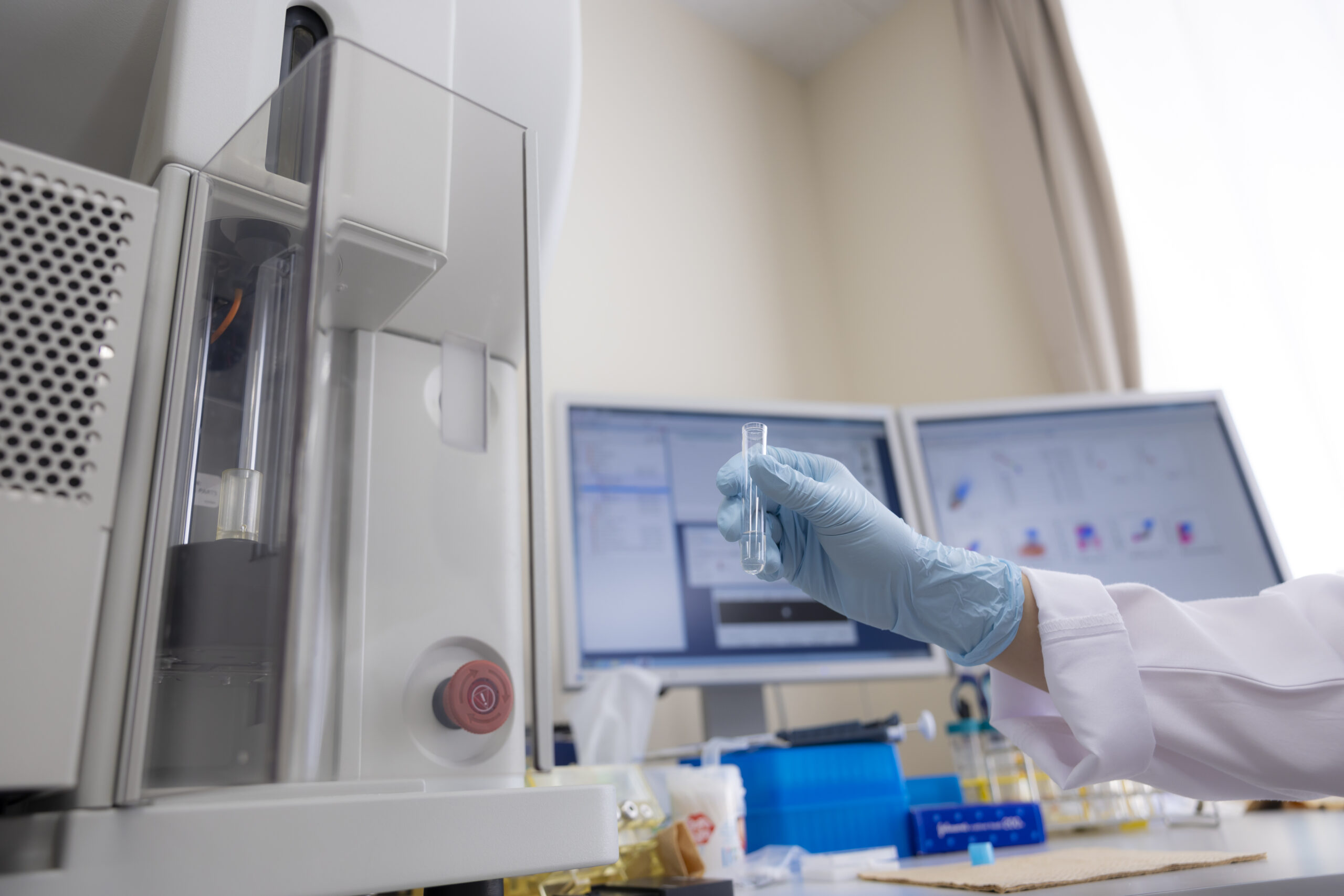
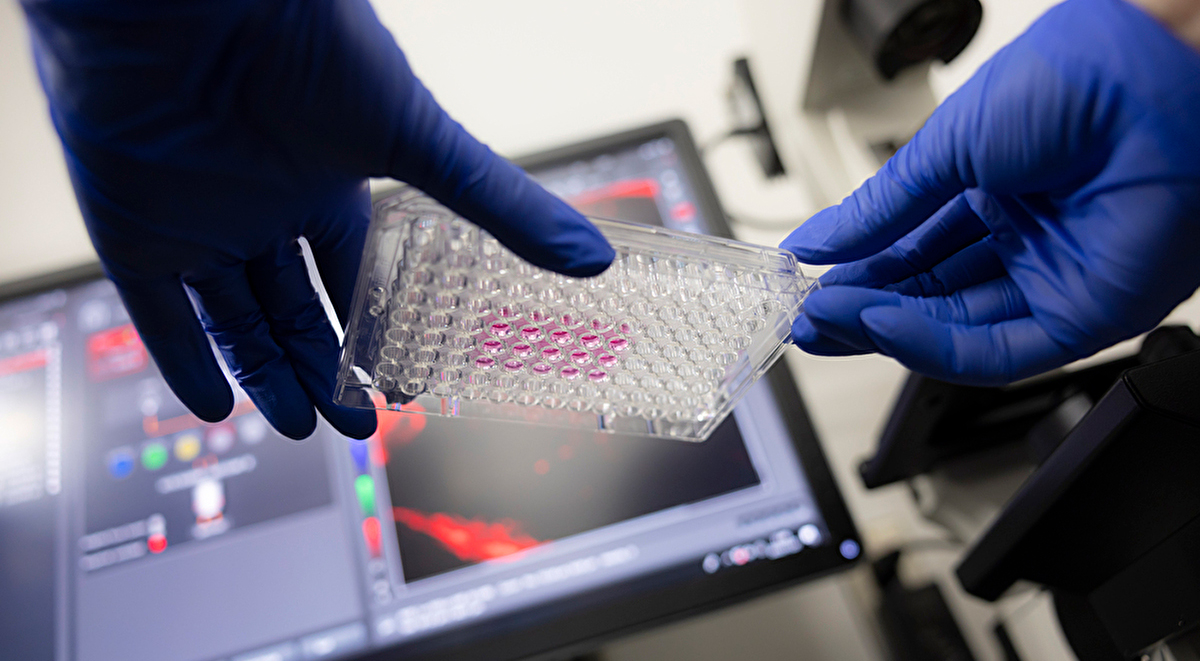
Our center focuses on the research and treatment of intractable diseases, with a constant emphasis on the application of our research to directly benefit patients.
The Genomic Medicine Research and Intractable Disease Laboratory is dedicated to strengthening the research and development framework by collaborating with researchers across various fields, both within and outside the university. For instance, by enabling more medical institutions to provide genetic analysis for mitochondrial diseases, we aim to enhance collaboration between basic research and clinical applications, and improve the hospital-clinic cooperation system for mitochondrial diseases.
Additionally, we plan to implement the necessary steps to understand the pathology of these diseases by conducting further analyses on unsolved cases by insurance-covered genetic tests and gathering genomic data (including gene expression and epigenetic data) from blood and affected tissues when conventional diagnostic methods cannot be performed.
At the Intractable Disease and Regenerative Medicine Laboratory, our primary focus is on translational research, while promoting practical research to develop new treatments for intractable diseases. Our goal is to provide new diagnoses and treatments for patients through pharmaceutical approval, insurance coverage, private medical care, and advanced medical technologies. We believe that our practical research and regenerative medicine developments will contribute to improving public health, extending healthy lifespans, enhancing regional healthcare, and reducing medical costs. Furthermore, by expanding our efforts globally to regions such as Asia, Europe, the United States, and other countries, we aim to contribute to the promotion of healthcare worldwide.


Director, Intractable Disease Research Center, Juntendo University Graduate School of Medicine
Researchmap
Research Center